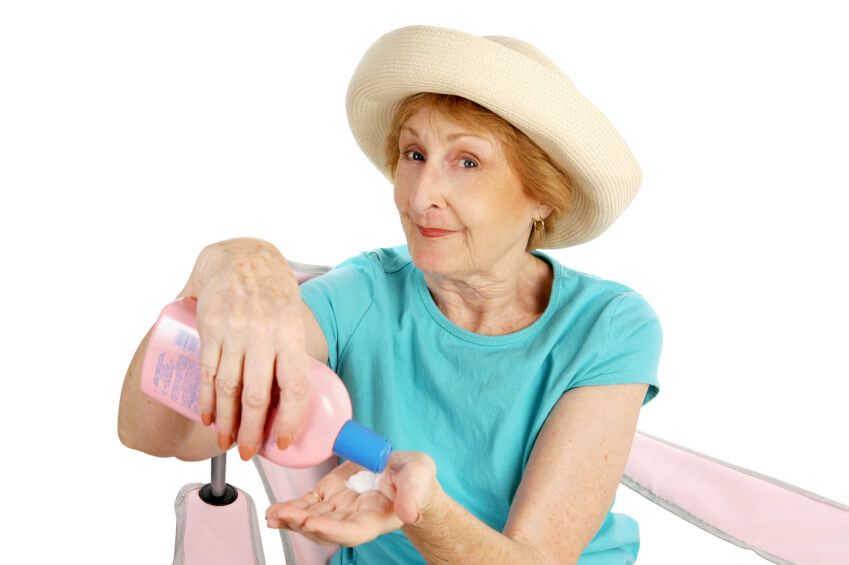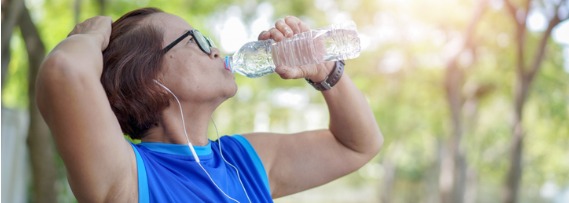
Recent studies show that the rates of melanoma, or skin cancer, are on the rise for seniors. This is particularly true for men over the age of 65, and it is an alarming finding. Skin cancer accounted for more than 5,700 deaths in men over the age of 60 in 2011, and this population is seeing an 8.8-percent annual increase in melanoma per year which is higher than in any other demographic.
Increasing Risks
One of the reasons for this steady increase is that sun damage accumulates over time. With repeated exposure, seniors increase their risk of being diagnosed with skin cancer and facing the health consequences associated with it. While some might think that the damage has already been done and there is nothing more they can do, this is not always the case. By taking preventative measures at any age, individuals can protect their bodies and their health.
Staying Protected
One important thing that seniors can do to decrease risks is avoid over exposure to harmful UV rays. This includes sun exposure and artificial exposure through tanning beds. Seniors should use an SPF sunscreen offering at least a protection rating of 30 anytime they are outdoors and wear protective clothing including wide-brimmed hats, sunglasses and light-weight, long-sleeved shirts. Seniors who have difficulty applying sunscreen due to arthritis or numbness related to diabetes can be assisted in this task by family, professional in home aides or caring volunteers.
Hydration and Shade
Avoiding sun damage also involves keeping the body well hydrated and offering ample shade to seniors during the hottest daylight hours. Staying in direct sunlight for no more than 20 minutes at a time is best, and water should be consumed regularly throughout the day. This is especially important for seniors with pale skin that may lack moisture and has become less supple with age. Seniors with Alzheimer’s or other forms of dementia should be reminded to seek shade and offered water by friends, family members and professional home caregivers.
Medications That Increase Risk of Skin Cancer
Another contributing factor that increases the risk of developing melanoma is medications. Many individuals over the age of 65 take multiple medications, and when combined, these medications can increase sunlight sensitivity. Even individual medications can have this effect, and seniors should use caution when exposing themselves to the sun while taking them. Awareness is key to lowering the risk of skin cancer when medications are involved, and medical professionals should take the time to discuss these risks with their patients and give advice on when and how to avoid over exposure to the sun’s rays.
Early Skin Cancer Detection
Finally, the importance of early detection cannot be emphasized enough. Family members and in home aides can assist with this task by making note of any changes in the skin including the development of raised, red patches, pink growths with raised edges, open sores that do not heal or wart-like growths. While these conditions may not indicate skin cancer, they should be reported to a medical professional immediately for a proper diagnosis. Seniors should also visit with their primary care physician or a dermatologist on an annual basis for a professional skin exam. When necessary, in home caregivers can assist with this task by scheduling the appointments, providing reminders for seniors and offering safe and reliable transportation.
Protecting the health of seniors in our community is important, and helping them to decrease their risk of developing skin cancer is a vital step to take toward meeting this goal. At Salus Homecare, custom care plans are developed for all of our clients addressing any health risks including melanoma. This process involves coordinating with our clients, medical providers and the senior’s family to address all concerns and goals with safety and comfort in mind. If you or a loved one needs assistance to remain independent, we are here to help. Call us anytime to schedule a free, no obligation consultation.


